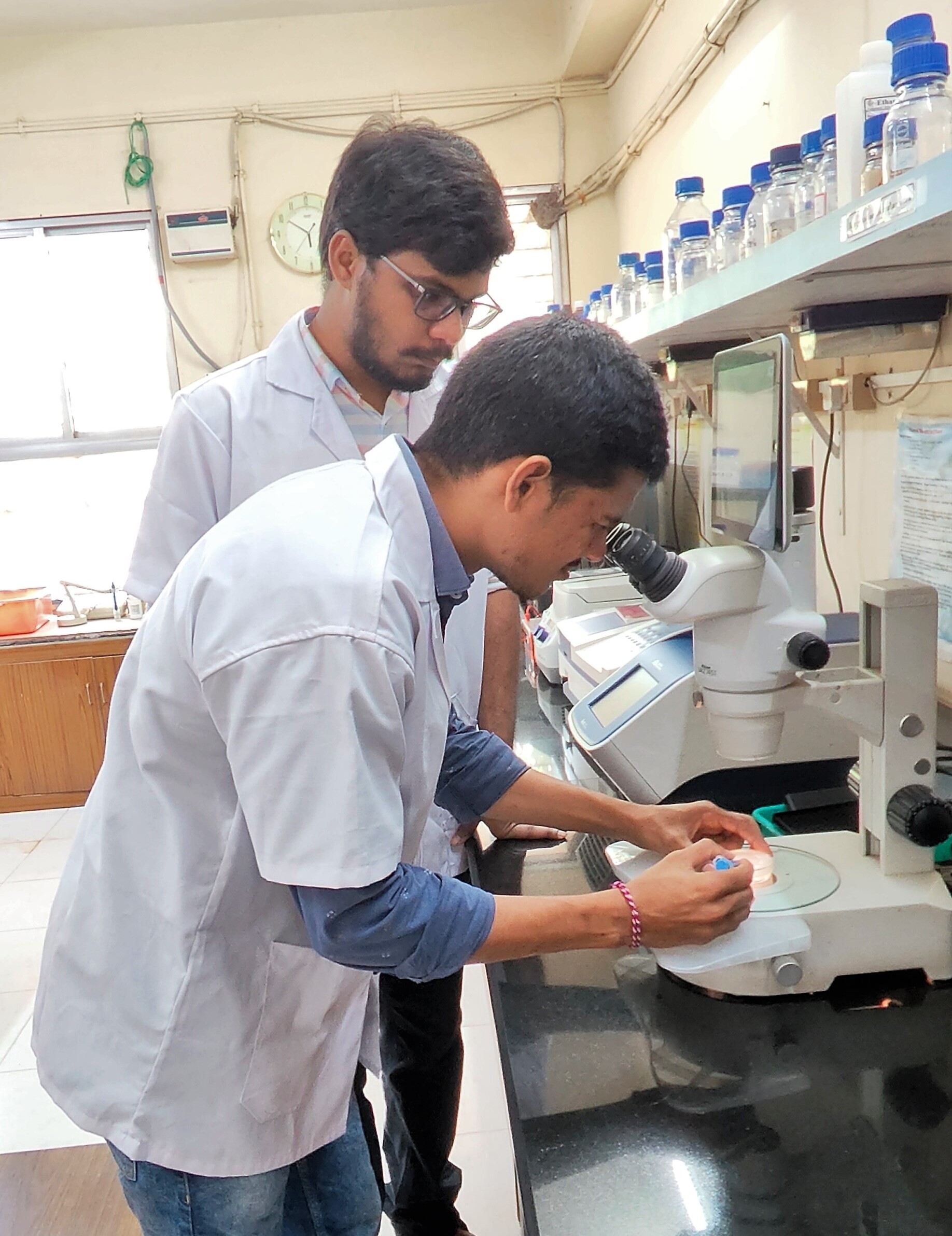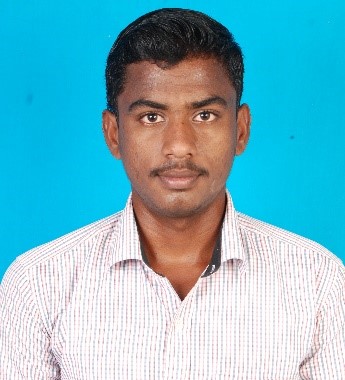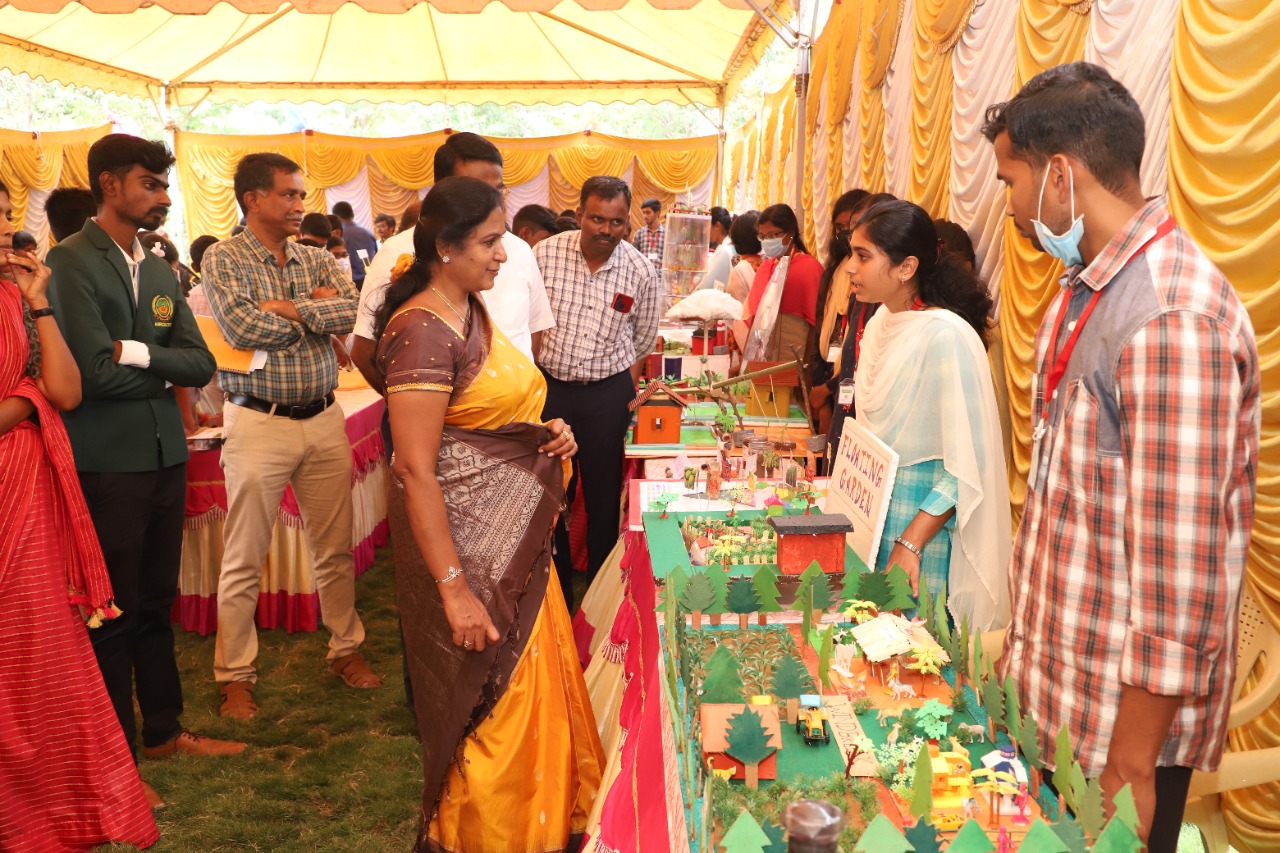The Tamil Nadu Agricultural University (TNAU) had its genesis from establishment of an Agricultural School at Saidapet, Madras, Tamil Nadu, as early as 1868 and it was later relocated at Coimbatore.
Get in touch
- info@tnau.ac.in
- 0422 6611200
- Monday to Friday: 9am to 5pm

M.Sc.(Ag.) in Agricultural Microbiology
Prelude
Master’s programme in Agricultural Microbiology was started in 1979 and so far 252 M.Sc.(Ag.) students have graduated. Agricultural Microbiology is one of the applied areas of microbiology in the field of Agriculture i.e., utilization of the beneficial microorganisms for soil and crop nutrition and management as bio-fertilizers, plant growth promoters as bio-stimulants, bio-degraders for compost /manure production, bio-control agents and value addition by way of production of fuels and renewable chemicals.
Why this programme?
- To know about the ecology, characteristics, physiology and functional properties of different microorganisms for application purpose.
- Learning the different applied areas of microbes viz., agriculture, environment, food, industry and microbial biotechnology.
- Gain knowledge to differentiate the beneficial from pathogenic microorganisms in terms of biosafety.
Study Programme
The Masters programme in Agricultural Microbiology has been designed following the UGC guidelines. The course imparts:
- Microbiology students develop or get experienced all the microbiological techniques.
- Develop knowledge in different fields of microbiology viz., microbial physiology, microbial genetics, soil, food and industry.
- Promote research on frontier areas of microbiology for developing efficient microbial strains for climate smart agriculture, food microbiology, biofuel production, waste management and other industrial application.
- Collaborative research (Indo-US, Indo-Japan) to reach global excellence.
- Promote entrepreneurial skills of microbiology students in the field of biofertilizers, probiotics etc.
Colleges offering
The master programme in M.Sc. (Ag.) in Agricultural Microbiology is offered by the Department of Agricultural Microbiology in the following campuses
- AC & RI, TNAU, Coimbatore
- AC & RI, Madurai
Application and Admission
Interested in taking part in the programme of Agricultural Microbiology? Find out more about the specific Admission requirements and the application procedures. If you doubt whether admission is possible, feel welcome to apply online. The Admission Committee will check your admissibility.
Future Career
Content required
Master’s in Agricultural Microbiology
Master Courses
In the first year, students will undergo a set of major (microbiology) and minor courses which will help them understand the basics of microbiology as per the Choice Based Credit System (CBCS) with a total credit load of 55, of which 20 credits are exclusively earmarked for their Thesis Research.
Master’s thesis research
After completing the courses in the first year, the students start their thesis research. Each student is assigned to an experienced faculty, approved by the Dean of School of Post-Graduate Studies, who would guide the student on his/ her choice of research topic.
Research Assistantship
The students are exposed to participate in the scientific events like workshop/symposia/Conferences and trainings in order to acquire current status and get updated. Initiatives taken to provide student assistantship for master students from the existing externally funded schemes.
Student Experiences

Myself Arun Kumar, and I am currently pursuing PhD in molecular biology at the university of Tartu, Estonia. I completed my bachelor’s degree in biotechnology at Tamil Nadu Agricultural University, Coimbatore, and then pursued a master’s degree in agricultural microbiology at the same university. Wide courses in the agricultural microbiology curriculum, along with the assistance of well-experienced lecturers, taught me to think about the bigger picture in this field. With the assistance of excellent lab facilities in the department of agricultural microbiology as well as other faculties at the university, I successfully completed my master’s thesis with good publications. Having said that, my master’s degree experience enabled me to excel as an independent researcher.

I am Manikandan Ariyan, currently doing a doctorate in Biodiversity and Ecological Sustainability at the Tartu University in Estonia. I received a bachelor’s in Agriculture from Annamalai University, Chidambaram, and a master’s degree in Agricultural Microbiology from Tamil Nadu Agricultural University. After completing my master’s degree, I worked as a Senior Research Fellow at the same university. Being fascinated by microbes has led me to pursue a career in the scientific research field

